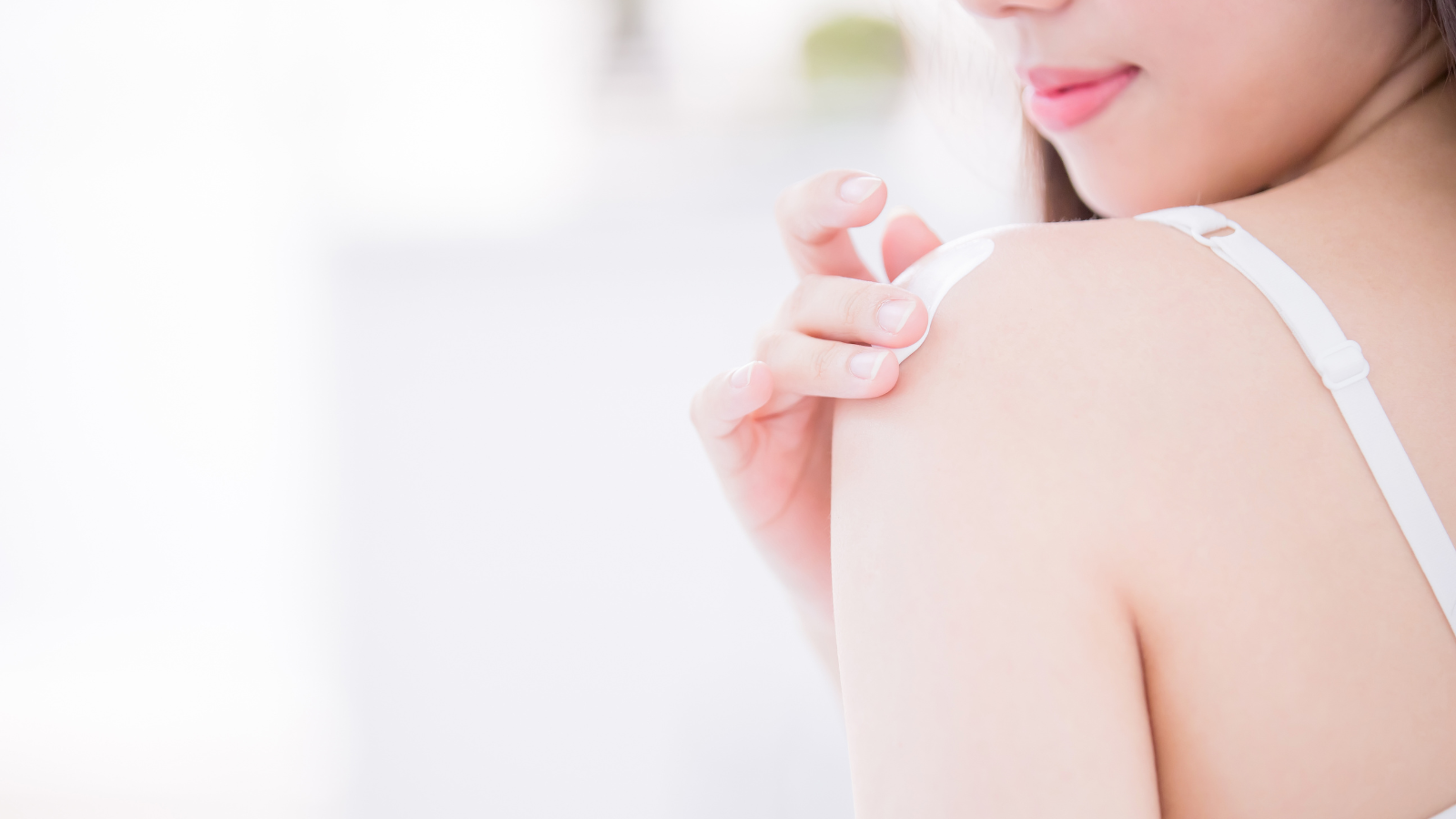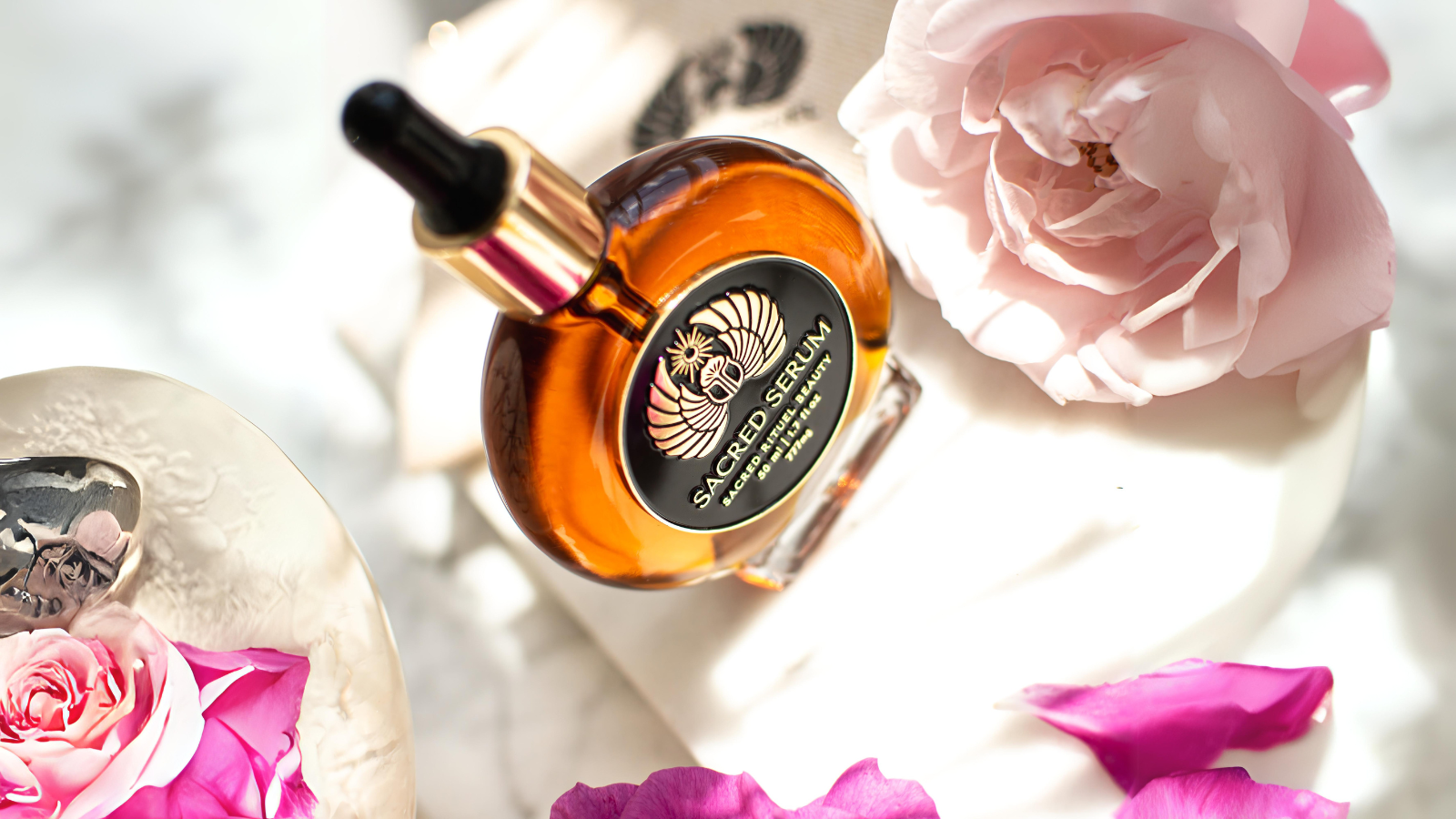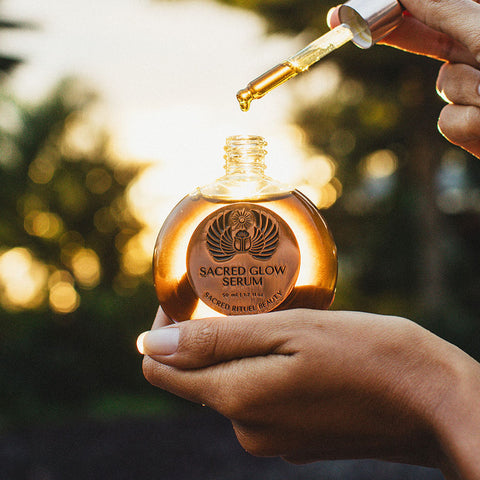
Relief Unleashed: A Comprehensive Guide To Lotions For Itchy Skin And Strategies For Soothing Comfort
Key Takeaways:
- Ingredient Awareness is Essential: Understanding the specific ingredients in lotions can prevent adverse reactions and ensure the product provides relief for itchy skin.
- Application Timing Enhances Effectiveness: Applying lotion immediately after bathing helps to seal in moisture for maximum hydration and itch relief.
- Routine and Right Choice are Crucial: Regularly applying the right type of lotion for your specific skin type and itch severity is fundamental to achieving and maintaining comfort.
Embarking on a journey to alleviate distressed, itchy skin is a Sacred Rituel—an intimate process of selecting the perfect potion that can restore harmony and offer the comforting embrace your skin craves. We understand that you not only seek relief but a sensory experience that nourishes both body and spirit. In this guide, we'll explore the enchanting world of body oils and lotions for itchy skin, curated specifically for those who appreciate the rituals of self-care and the sacred bond between their well-being and the products they choose.
Prepare to explore the profound advantages of cold-pressed oils! Begin your transformative skincare expedition with Sacred Rituel, delving into our array of organic skincare essentials to initiate a revitalizing skincare odyssey.
Understanding Itchy Skin: Causes And Triggers
Itchy skin, or pruritus, can have an array of triggers, from environmental factors to internal disharmony. Common culprits include low humidity that strips the skin of moisture, allergenic substances like pet dander or pollen, and reactions to certain fabrics or chemicals found in laundry detergents. Underlying health issues, such as eczema, psoriasis, or kidney disease, can also lead to persistent itchiness. Psychological stress is a less visible but potent exacerbator of skin irritation. Hence, pinpointing the cause is crucial for effective relief as it guides the appropriate choice of remedy and preventive measures.
Embrace The Sacred Ritual Of SkincareTransform your daily routine into a divine experience with Sacred Rituel's collection of organic, raw ingredients. Select the perfect elixir for your skin and let the soothing begin.
Ready for your sacred discovery? Explore a world of soothing skincare products tailored to your skin's unique needs. Explore Now and Find Relief |
Exploring Lotions' Role In Itch Relief
Lotions are a first line of defense in the battle against itchy skin, working to soothe irritation and rebuild the skin's moisture barrier. By infusing the skin with hydration and essential nutrients, lotions help to restore the natural balance disrupted by dryness or irritation. They serve as a physical shield, preventing further damage by environmental factors and reducing the potential for itch to worsen. Additionally, many lotions contain anti-inflammatory or antipruritic ingredients that actively diminish the itch sensation. Lastly, lotions can also aid in the repair of damaged skin, accelerating the path to recovery and comfort.
Types Of Itch-Relief Lotions
Emollient Rich Lotions
Emollients, found in certain lotions, work wonders in enhancing skin texture and comfort. These components possess the ability to soften and smoothen the skin's scales, instantly providing relief by filling in the gaps between skin cells. Lotions enriched with emollients, such as lanolin or silicone derivatives, are particularly advantageous for extremely dry skin. Their thicker consistency creates a durable barrier on the skin's surface, offering prolonged moisture retention while ensuring a supple and pliable skin texture.
Cooling Lotions
Designed with ingredients like menthol or eucalyptus, cooling lotions offer a soothing sensation that effectively alleviates itchiness. The cooling effect operates by stimulating nerve endings on the skin, temporarily overriding the itch sensation. These lotions serve as a valuable distraction from discomfort, especially for itches arising from conditions like heat rashes or mild burns, providing a refreshing relief that helps alleviate the discomfort.
Medicated Lotions
When itching becomes severe or persistent, turning to medicated lotions can be beneficial. These lotions often contain components like hydrocortisone or calamine, which work specifically to address different aspects of skin irritation. Hydrocortisone, known for its anti-inflammatory properties, reduces inflammation and suppresses the immune response responsible for itching. On the other hand, calamine possesses mildly astringent properties, offering soothing relief for conditions such as chickenpox or exposure to poison ivy.
Benefits Of Using Lotion For Itchy Skin
Hydration
The pivotal role of hydration in the benefits of lotions cannot be overstated. By replenishing the water content in the stratum corneum, the outermost layer of the skin, lotions play a vital role in maintaining skin moisture. Consistent hydration helps ward off dryness, a common precursor to itching, ensuring the skin remains supple and resilient against potential irritants.
Soothing Properties
One of the most immediate and invaluable effects of lotions is their ability to provide soothing relief to itchy skin. Ingredients like aloe vera or allantoin possess remarkable properties that work to calm the skin, reducing redness and inflammation often associated with itching. This soothing action not only alleviates discomfort but also aids in promoting a sense of relief and comfort for irritated skin.
Restoring Skin Barrier
The skin's natural barrier is essential in shielding against external aggressors. Lotions contribute significantly to healing and reinforcing this barrier, aiding in restoring its integrity. By fortifying this protective layer, lotions help reduce vulnerability to irritants that can trigger itching, fostering healthier and more resilient skin.
Anti-Inflammatory Effects
Certain lotions are formulated with potent anti-inflammatory agents designed to address swelling and redness, common symptoms accompanying itch-inducing conditions. These interventions play a crucial role in minimizing the urge to scratch, which can exacerbate skin conditions and prolong discomfort. By targeting inflammation, these lotions provide relief and contribute to the overall comfort and well-being of the skin.
Precautions And Allergies In Lotion Use
Understanding Ingredient Profiles
Having knowledge about the ingredients present in your lotion is crucial, especially if you have sensitive skin or known allergies. Certain lotions may contain fragrances or preservatives that can potentially trigger allergic reactions, exacerbating itchy skin conditions. Being mindful of these components can help prevent adverse reactions and promote healthier skin.
Patch Testing
Before fully incorporating a new lotion into your skincare routine, conducting a patch test is a prudent step. Applying a small amount of the lotion to a discreet area of the skin allows for observation of any potential adverse reactions over a period of 24 to 48 hours. This precautionary measure helps assess the compatibility of the lotion with your skin and minimizes the risk of widespread irritation or discomfort.

Seeking Professional Advice
In instances where over-the-counter lotions do not provide the expected relief or if skin irritation persists, seeking guidance from a dermatologist is highly recommended. A dermatologist can offer insights into whether a prescription-strength treatment might be necessary and provide personalized advice on suitable products tailored to your skin's specific needs. Their expertise can be invaluable in diagnosing underlying issues and recommending the most effective course of action for managing itchy skin conditions.
Strategies For Applying Lotions For Maximum Relief
Right After Bathing
The immediate application of lotion post-bathing serves as a strategic approach to maximizing skin hydration. By applying lotion while the skin is still damp, it effectively seals in the moisture present on the skin's surface. This practice acts as a barrier, trapping essential moisture and preventing its evaporation. Ultimately, this proactive step helps maintain skin softness and acts as a preventive measure against the dryness that often triggers itching.
Layering Techniques
In instances where the skin is excessively dry or irritated, employing a layering technique can prove beneficial. Initiating with a thin application of a medicated lotion, if necessary, addresses specific concerns such as inflammation or itchiness. Following this with a thicker emollient cream helps to seal in the treatment and moisture, creating a protective shield that supports the skin's healing process and reinforces its barrier function.
Regular Application Schedule
Establishing a consistent routine of applying lotion is pivotal in staving off the onset of itchy skin. Adhering to a schedule of at least twice-daily application, or as frequently as needed, ensures that the skin remains consistently hydrated and shielded from potential external irritants. This proactive approach not only maintains the skin's moisture balance but also fortifies its resilience against dryness, significantly reducing the likelihood of experiencing itching discomfort.
Choosing The Right Lotion For Your Skin Type And Itch Severity
For Dry And Sensitive Skin
Individuals with dry and sensitive skin require specialized care through hypoallergenic and fragrance-free lotions. These lotions, enriched with emollients and devoid of irritants, offer crucial hydration without triggering adverse reactions. Opting for these gentle formulations helps maintain skin moisture levels, ensuring comfort and nourishment without provoking sensitivities.
For Oily Or Acne-Prone Skin
Managing oily or acne-prone skin necessitates choosing non-comedogenic lotions. These formulations are designed specifically to avoid clogging pores, which can exacerbate existing skin issues. By selecting non-comedogenic lotions, individuals can hydrate their skin effectively without worsening acne or oiliness, allowing for balanced skincare tailored to their specific needs.
For Severe Itching And Skin Conditions
Addressing severe itching or chronic skin conditions often requires medicated lotions containing potent ingredients like steroids or antihistamines. These formulations provide targeted relief, addressing the underlying causes of itching or inflammation. Consulting a dermatologist is crucial to identifying the right medicated lotion, ensuring effective treatment while minimizing potential side effects. This personalized approach offers tailored solutions for managing severe itching and chronic skin conditions, promoting comfort and skin health.
Alternative Remedies For Itchy Skin
Sacred Serum
Your solution for visibly reducing fine lines and blemishes. Crafted to refine your skin's texture and ignite an instant radiant glow, this serum effortlessly absorbs its lightweight texture, leaving your skin feeling soft, supple, and thoroughly hydrated. Tailored for all skin types, it shields against environmental damage through a potent blend of antioxidants, fatty acids, and a spectrum of vitamins (A, B, C, D & E). Whether dealing with fine lines, blemishes, or itchy skin, Sacred Serum is available in a 50 ml round glass bottle providing approximately 4 months of twice-daily use or a 30 ml glass pump lasting around 2 months with twice-daily application.
Maximize your skin's potential with Sacred Serum. Get FREE Standard Shipping on orders above $50, and upgrade to FREE Express Shipping for orders over $100!

Oatmeal Baths
Engaging in an oatmeal bath presents a soothing and natural remedy for relieving itchy skin. The colloidal properties of oatmeal have a calming effect on skin inflammation, acting as a protective barrier. This gentle yet effective approach helps soothe irritated skin, providing relief from discomfort while promoting a sense of calmness and comfort.
Keeping Cool
Sometimes, simple measures like maintaining skin coolness can offer significant relief from itching. Employing a damp, cold compress or opting for cool showers can effectively alleviate the discomfort associated with itchy skin. These cooling techniques provide relief without the need for additional products, offering a straightforward yet impactful solution to ease itchiness and restore skin comfort.
Final Thoughts On Lotion For Itchy Skin
Finding the right lotion for itchy skin is a journey towards comfort and self-awareness. Consider your skin's unique needs and the specific causes of your itch. Embrace the practice of applying lotion as a nurturing ritual, and remember to consult with a dermatologist if the journey proves challenging. With the right tools and a mindful approach, the relief provided by these sacred potions can bring about lasting serenity for your skin.
In skincare, authentic beauty thrives by honoring and caring for your skin with all-natural products. At Sacred Rituel, we celebrate nature's essence, crafting our products from superior organic ingredients.
Read Also:
- Going Green: Understanding Vegan Skincare And Its Benefits
- Get Glowing In 2023: The Ultimate Face Oil Guide
- Unlock the Secret to Glowing Skin with These Cold-Pressed Raw Organic Face Oil Ingredients
Frequently Asked Questions About Lotion For Itchy Skin
How do lotions for itchy skin differ from regular moisturizers?
Lotions for itchy skin are specifically formulated to address the discomfort and irritation caused by itching. They often contain ingredients like colloidal oatmeal, menthol, or hydrocortisone to soothe the skin, whereas regular moisturizers primarily aim to hydrate the skin without focusing on itch relief.
Are there natural or organic lotions effective for alleviating itching?
Yes, natural or organic lotions can be effective in relieving itching. Ingredients like aloe vera, chamomile, shea butter, and certain essential oils (lavender, tea tree, etc.) have soothing properties that can calm itchy skin.
Can lotions for itchy skin cause further irritation or allergic reactions?
Some lotions may contain fragrances, preservatives, or certain ingredients that could trigger irritation or allergic reactions in sensitive individuals. Opting for fragrance-free, hypoallergenic, or dermatologist-tested formulations can help mitigate this risk.
How often should lotions for itchy skin be applied for optimal relief?
Applying lotion for itchy skin 2-3 times a day or as needed can provide relief. Follow the product's instructions or consult a dermatologist for personalized recommendations.
Are there fragrance-free options available for individuals with sensitive skin?
Yes, many lotions designed for sensitive or itchy skin come in fragrance-free variants to cater to those with sensitivity to scents.
Do certain ingredients in lotions exacerbate itching or provide soothing effects?
Ingredients like hydrocortisone, aloe vera, colloidal oatmeal, and certain essential oils (lavender, chamomile) are known for their soothing effects. However, some individuals might be sensitive to specific ingredients, so it's essential to identify potential allergens.
Can lotions for itchy skin be used on children or individuals with skin conditions like eczema or psoriasis?
Yes, certain lotions specifically formulated for sensitive skin, eczema, or psoriasis are safe for use on children and individuals with these skin conditions. It's advisable to consult a healthcare professional for proper guidance.
Are there lifestyle changes or additional strategies that complement the use of lotions for itchy skin?
Lifestyle changes like avoiding hot showers, wearing breathable clothing, managing stress, and staying hydrated can complement the effectiveness of lotions for itchy skin.
How quickly do lotions for itchy skin provide relief, and are there long-term benefits to their use?
Relief from itching can vary depending on the severity and cause. Some lotions offer immediate relief, while consistent use over time can provide long-term benefits by moisturizing and calming the skin.
Are there any side effects or precautions to consider when using lotions for itchy skin, especially with long-term use?
Long-term use of certain ingredients like corticosteroids may have side effects like thinning skin or discoloration. It's crucial to follow usage guidelines and seek medical advice if any adverse reactions occur.
Sources:
- Dhingra, S., & Del Moral, L. (2020). Review of complementary and alternative medicine for atopic dermatitis. International Journal of Dermatology, 59(11), 1337-1348. https://pubmed.ncbi.nlm.nih.gov/27388911/
- Liew, W., & Creamer, D. (2018). Contact dermatitis from cosmetic ingredients. Dermatologic Clinics, 36(3), 337-345. https://pubmed.ncbi.nlm.nih.gov/24656778/
- Yosipovitch, G. (2020). Moisturizers for atopic dermatitis: A practical approach. Journal of the American Academy of Dermatology, 82(1), 23-31. https://www.jaad.org/collection-atopic-dermatitis
- Kowalska-Olczyk, A., & Kowalska, D. (2019). The role of fragrance in allergic contact dermatitis. Archives of Dermatological Research, 411(1), 21-27. https://pubmed.ncbi.nlm.nih.gov/32475515/
- Liew, K., & Wong, K. C. (2022). Moisturizers in the management of atopic dermatitis: A systematic review. Journal of the American Academy of Dermatology, 86(5), 1037-1051. https://pubmed.ncbi.nlm.nih.gov/26267423/
- Blume-Peytavi, U., & Ghislain, N. (2014). Topical corticosteroids in atopic dermatitis: Benefits and risks. Dermatology, 229(4), 313-320. https://pubmed.ncbi.nlm.nih.gov/34233978/







Commentaires (0)
Il n'y a pas de commentaires pour cet article. Soyez le premier à laisser un message !